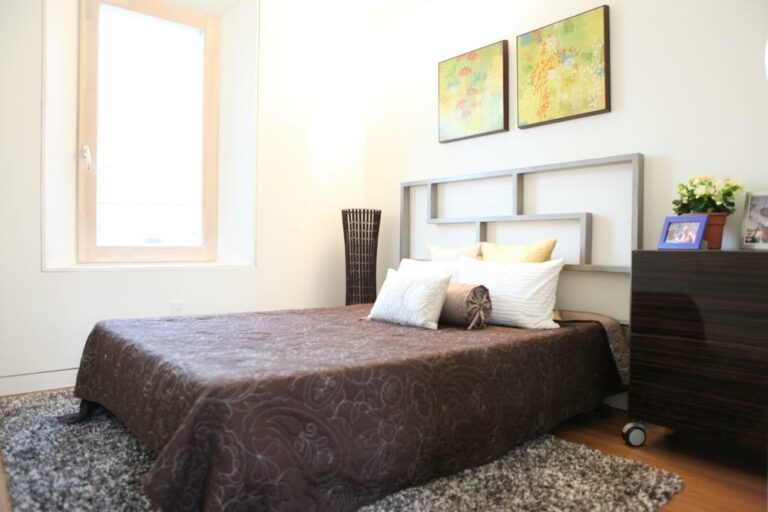Waking up in the middle of the night with your heart racing has probably happened to everyone at some point. Sometimes, we feel like we are falling from a high point and experience trembling as a part of the imaginary drop. This is a very common sensation, which has probably made many of us ask ourselves, “why do I shake in my sleep?”
After a lot of research, the answer turned out to be very interesting. In short, such involuntary muscle twitches aren’t always due to bad dreams, and they’re called myoclonic jerks or hypnagogic jerks. There are several reasons for these muscle spasms, they’re known to happen in completely healthy people and are very common, so you’re definitely not alone.
Let’s take a look at why and how they may happen.
Hypnic Jerks
Hypnic jerks are a subtype of myoclonus, which is a category of involuntary muscle movements. Another familiar form of myoclonus is hiccups.
Hypnic is the short form of the word “hypnagogic.” Other common names for hypnic jerks are myoclonic jerks, sleep starts, and sleep twitches, and all terms except for the first one are interchangeable since myoclonus encompasses a wide array of involuntary movements.
Hypnic jerks commonly affect one side of your body, like your right leg and right arm. Sometimes, these jerks are so mild that you won’t even notice them, while at times they are intense enough to disturb your deep sleep stage.
Hypnic jerks are not a severe medical condition and they don’t have any side effects (or cause any complications). They may occur at any age but are most common in adults who consume higher amounts of caffeine or are under excessive physical and emotional stress. Taking certain antidepressants and sleep medicines are also possible causes.
Symptoms of Hypnic Jerks
Note that this is a natural phenomenon and usually does not have any warning signs, but a person with hypnagogic jerks may experience the following symptoms:
- A jolt of an extremity or particular muscle;
- Sweating;
- Rapid heart rate;
- Sensory flashes;
- Quickened breathing;
- Falling sensation.
Causes of Hypnic Jerks
Research on this health condition is limited and no specific cause of hypnic jerks is found to date. While progressive severe myoclonus has been linked to hyperactivity in the reticular formation and medulla oblongata (central nervous system), a direct cause of the benign, usual hypnic jerks most of us experience has not been found.
That being said, there are potential exacerbating factors that may lead to more frequent hypnic jerks. Let’s go over them.
Stress and Anxiety
Stress is one of the prominent causes of sleep disorders. When you are anxious, cortisol levels remain high even during sleep and keep you restless, which disturbs the transition between sleep and wakefulness. This can trigger a hypnic jerk.
Research by the Sleep Foundation shows that anxiety and insomnia – as well as other sleep disorders – are very closely related. In a nutshell, your brain keeps receiving signals to stay “alert,” and your muscles fail to relax even during sleep.
Excessive Consumption of Caffeine
Another potential cause of hypnic jerks is the high consumption of caffeine. As caffeine in excessive quantities is a potent stimulant, it comes about as a no-brainer that it’d impact sleep patterns, sleep quality, and even end up being a direct cause of hypnic jerks among other sleep disorders.
In layman’s terms, caffeine basically forces your brain to stay active, so ultimately, even if you do fall asleep, the likelihood of experiencing a jerk increases.
Sleep Deprivation
A disturbed sleep routine or insomnia are also potential culprits of hypnic jerks. Sleep deprivation, as well as fatigue and stress, has a negative effect on your focus and mood, impacting your natural sleep cycles.
Heavy Exercise at Night
Regular exercise is an excellent way of getting a healthy body and high-quality sleep. But, vigorous physical activity before bedtime will definitely affect the quality of your sleep. Exercising shortly before bedtime doesn’t leave enough time for your core body temperature to drop and may delay sleep and potentially lead to sudden jerks, so you’d do well to avoid late-night gym sessions.
Potential Conditions Related to Hypnic Jerks
Restless Leg Syndrome
Restless leg syndrome (RLS) is commonly characterized as an uncontrollable urge to move one or both legs due to an uncomfortable sensation. It commonly occurs during the evening or at night. The exact cause of RLS is still unknown and moving the affected leg(s) temporarily alleviates the unpleasant sensation.
Parkinson’s Disease
Parkinson’s disease is a neurological disorder that mainly affects people over the age of 70. It results in uncontrolled shaking, muscle stiffness, changes in posture, and loss of coordination. As it progresses, the symptoms usually get worse over time, eventually leading to difficulty walking as well as talking.
Epilepsy
People with juvenile myoclonic epilepsy (JME) also suffer from sleep myoclonus and other similar issues.
Sleep Apnea
Sleep apnea is also a common cause of myoclonic jerks. Sleep apnea causes restrictions in the airflow and disrupts breathing during sleep.
When to See a Doctor for Hypnic Jerks
Hypnagogic jerks, for the most part, are not a severe medical issue, so seeing a doctor is not exactly necessary. However, if you face continuous contractions in your muscles that affect other parts of your body or if hypnic jerks get progressively more frequent, you should definitely seek medical advice.
While hypnic jerks are commonly misdiagnosed as myoclonic seizures, if other epileptic symptoms are also present, chances are that a more detailed health check-up is necessary.
How to Treat Hypnic Jerks at Home
Since there’s no direct cause to tackle, you could try and manage some of the factors that may aggravate hypnic jerks.
- Adopt better sleep habits;
- Learn to manage anxiety and stress through therapy;
- Minimize the consumption of caffeine;
- Exercise regularly, but during the earlier parts of the day.
Takeaway
Ultimately, shaking in your sleep or when falling asleep is due to hypnic jerks, and they’re not a cause for concern. For the most part, they’re benign and something that almost all people experience at some point in their lives.
While hypnagogic jerks don’t have a defined direct cause, if they’re all too prevalent and frequent, they might indicate the presence of certain other conditions, in which case you should definitely consult your doctor. Otherwise, mitigating indirect risk factors such as caffeine, sleep deprivation, heavy exercise at night, and stress may help to reduce them.






